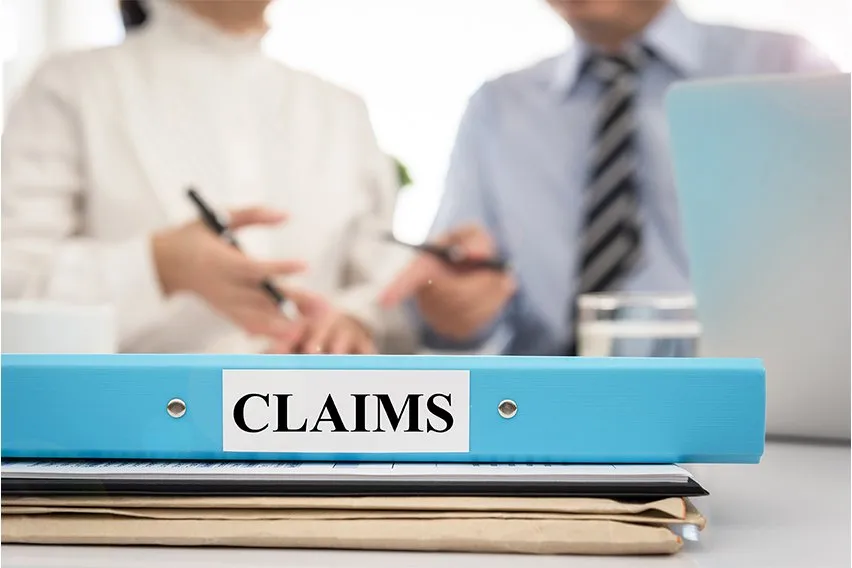What Is Impairment in Accounting?

Keeping track of assets’ value is part of every business’s basic balance sheet. Impairment is something that can happen when their value changes suddenly. Whatever assets you have, it’s important you know what impairment is and what it means to your balance sheet.
Here’s What We’ll Cover:
Definition of Impairment in Accounting
How Do Assets Become Impaired?
How Is Impairment Different From Depreciation?
How Do I Judge if an Asset Is Impaired?
Are All Assets Included in the Impairment Regulations?
What Does Impairment Mean for My Balance Sheet?
Definition of Impairment in Accounting
HMRC’s definition reads: “Under FRS102 s27, an impairment loss occurs when the carrying amount of an asset exceeds its recoverable amount.”
To unpick this a little…
Carrying amount: The amount the asset is valued at and ‘carried’ in your financial records
Recoverable amount: The amount that would be ‘recovered’ if you sold that asset
Impairment: If the carrying amount is more than the recoverable amount the item becomes an ‘impaired asset’. The drop in value is sudden, unexpected and drastic.
In plain English, an asset is impaired if it would sell for less than the value in your records.
This applies to both tangible, fixed assets and intangible assets. If their worth abruptly decreases, for whatever reason, they might need to be reclassified as ‘impaired assets’.

How Do Assets Become Impaired?
There are several causes for the impairment of assets, such as:
- Legal rulings: Your business is currently in dispute with an injured employee and the equipment involved in the work accident isn’t allowed to be used until the case is resolved.
- Market dips: So the market value of your asset decreases
- Technical innovation: A new product from a competitor renders your asset out-of-date and worth considerably less
- Massive economic and political change: Like a market crash, or leaving the European Union
- Excessive running costs decrease the assets’ value, particularly over time
- Poor management decisions
- Wider economic factors: Increase in interest rates or fluctuating currency markets
- New competition: Taking consumers’ attention
The main thing all of these causes have in common is that they are unexpected. This is a defining feature of impairment in accounting. It’s not something that can be planned for.
How Is Impairment Different From Depreciation?
Depreciation and impairment often get muddled because they both govern an asset’s decrease in value.
Depreciation is to do with an asset’s decreasing value during an accounting period, due to wear and tear over time. For example, a piece of machinery that’s been in daily use for 15 years will no longer be worth it’s original price tag. Depreciation of an asset is expected and the financial result is predictable.
Impairment comes from either a sudden, one-off cause that results in a quick, dramatic fall in the asset’s value, or a quick sequence of related events.
How Do I Judge if an Asset Is Impaired?
It can be difficult to assess if an asset is impaired or not because it’s a subjective decision. Even professionals can come to different conclusions about the same asset.
But at every accounting period reporting date you’re expected to test each asset for impairment and declare them as ‘impaired’ if necessary.
This doesn’t mean you have to wait until then. In fact, it’s wise to do an impairment review when it’s appropriate, in response to relevant internal and external influences as they happen.
These are HMRC’s minimum indicators for your annual impairment tests:
- “Decline in market value of the asset
- Changes to the business environment
- Increases in market interest rates (which may affect discount rates used)
- The carrying amount of the net assets exceeds the fair value of the entity as a whole
- Obsolescence or physical damage to the asset
- Changes in the way the asset is used
- Economic performance of the asset is worse than expected”
When you’re considering assets for impairment, this is a good place to start when you’re initially deciding their definition.

Are All Assets Included in the Impairment Regulations?
Most business assets are subject to the impairment regulations. But there are some exemptions.
In their ‘Impairment of Assets, FRS 102 Factsheet’, the Institute of Chartered Accountants in England and Wales (ICAEW) lists all of these exclusions, alongside their specific regulation number:
“(a) assets arising from construction contracts (covered in FRS 102 Section 23
Revenue);
(b) deferred tax assets (FRS 102 Section 29 Income Tax);
(c) assets arising from employee benefits (FRS 102 Section 28 Employee Benefits);
(d) financial assets within the scope of FRS 102 Section 11 Basic Financial
Instruments or Section 12 Other Financial Instruments Issues;
(e) investment property measured at fair value (FRS 102 Section 16 Investment
Property);
(f) biological assets measured at fair value less estimated costs to sell (FRS 102
Section 34 Specialised Activities); and
(g) deferred acquisition costs and intangible assets arising from contracts within the
scope of FRS 103 Insurance Contracts.”
If your business consists mainly of items from this list, you don’t have to consider each asset for impairment.
What Does Impairment Mean for My Balance Sheet?
Your accountant will check assets for impairment, as and when it’s necessary. If they determine that the recoverable amount of the asset is substantially less than the carrying amount, this asset will be deemed impaired.
The asset’s value is then ‘written down’ to the new, lower recoverable amount as an ‘impairment loss’. This is recorded as an expense on your income statement and the decreased value of the asset is now on your overall balance sheet.
RELATED ARTICLES

 Net Present Value (NPV): Definition, Examples & Calculation
Net Present Value (NPV): Definition, Examples & Calculation Can Employers Claim Back Statutory Sick Pay From HMRC?
Can Employers Claim Back Statutory Sick Pay From HMRC? How Do I Claim My Mileage Back From HMRC?
How Do I Claim My Mileage Back From HMRC? Tax Refund: How to Claim Tax Back? (PAYE & Self-Assessment)
Tax Refund: How to Claim Tax Back? (PAYE & Self-Assessment) 6 Free Bookkeeping Courses with Certificates (2025 Edition)
6 Free Bookkeeping Courses with Certificates (2025 Edition)